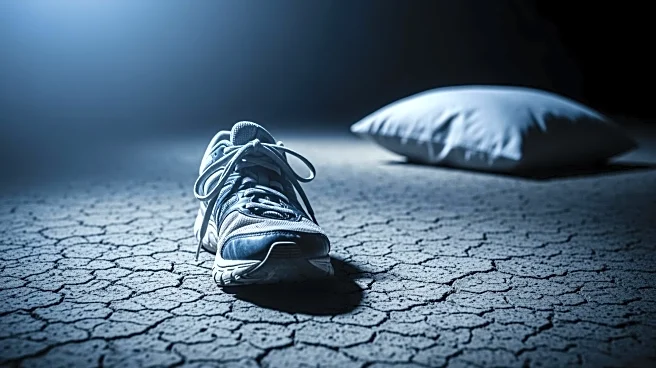What's Happening?
A recent study published in Applied Sciences has highlighted the critical role of sleep in reducing injury risk among recreational runners. The research analyzed the sleep patterns and injury reports of 425 runners, revealing that those with poor sleep had
a 68% higher chance of sustaining injuries over a year. Poor sleep was characterized by fewer hours of rest, lower sleep quality, and more sleep disturbances. The study emphasizes that chronic sleep deprivation undermines recovery, coordination, and judgment, creating a higher risk for injuries. Experts suggest that sleep should be prioritized as a key component of athletic performance.
Why It's Important?
The findings underscore the importance of sleep in athletic performance and injury prevention, particularly for runners. Poor sleep affects reaction time, coordination, and recovery, leading to increased inflammation and reduced force production. This has broader implications for sports medicine and training programs, highlighting the need for athletes to prioritize sleep as part of their regimen. Recreational runners, who may juggle multiple responsibilities, are advised to consider sleep as a crucial factor in their training to prevent injuries and enhance performance.
What's Next?
Athletes and coaches may need to reassess training schedules to incorporate adequate rest periods and emphasize sleep hygiene. The study suggests keeping a log to track fatigue and readiness for runs, which could help identify patterns and optimize training. As awareness grows, sports organizations might develop guidelines to integrate sleep as a fundamental aspect of athletic training and recovery strategies.
Beyond the Headlines
The study raises questions about the broader societal impacts of sleep deprivation, particularly in high-pressure environments. It suggests a cultural shift towards valuing sleep as a critical component of health and performance, potentially influencing workplace policies and public health initiatives.
















